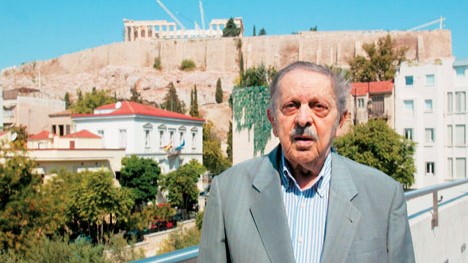By John Voutos
On this day in 2011, the late WWII resistance veteran and hero, Apostolos Santas, dies.
Apostolos Philippos ‘Lakis’ Santas was born on the 22nd of February 1922 in Patras, Greece, to Lefkadan parents.
He was 12 years old when he moved to Athens with his family in 1934.
Santas began studying law at the National and Kapodistrian University of Athens in 1940. Here, he would share classes and become close friends with the late-great Manolis Glezos, and graduate after Greek liberation in 1944.
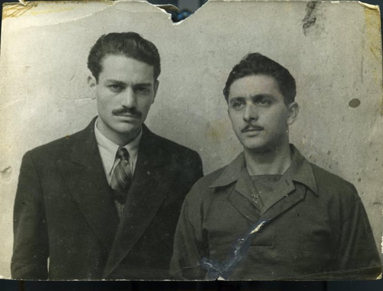
Meanwhile, Santas prescribed to join the fledgling National Liberation Front (EAM) and the Communist Party’s guerrilla force ELAS in 1942 to help battle rapid escalations from the Nazi/Axis Armies throughout central Greece.
Santas and Glezos were a pair of teenage law students when they decided to kick-off a defining gesture of opposition against Nazi occupation in Greece.
“Hitler had said in a speech that, ‘Europe is free’. We wanted to show him that the fight was just beginning,” Glezos reflected to the Agence France-Presse in 2011.
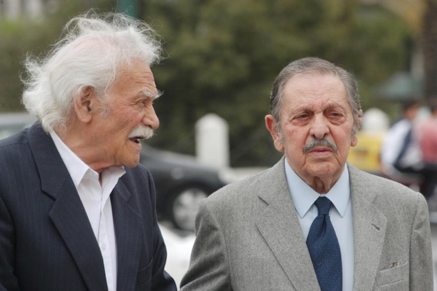
An act of defiance
April 27, 1941. WWII began a year-and-a-half before German tanks rolled into Greece to claim siege.
The Nazis hoisted a swastika flag atop a 50-foot-high flagpole at the Acropolis in Athens to mark the beginning of a 3-and-a-half-year occupation.
A month later on the night of May 30, 1941, Santas and Glezos would take a gallant stand against this gesture’s “[offence] to all human ideals.”
The pair discovered a cave route to sneak passed the sentry and climb the steep Acropolis Hill. A torch, a pocket knife, and the Battle of Thermopylae in mind was all the pair had when they crept through the undergrowth and up the caves of the Acropolis.
The 3-hour operation saw the pair scale the pole, cut the banner down, tear off trophy pieces of the flag and hide the rest before making their escape. They were greeted at the base of the Acropolis by a Greek police officer who let them go.
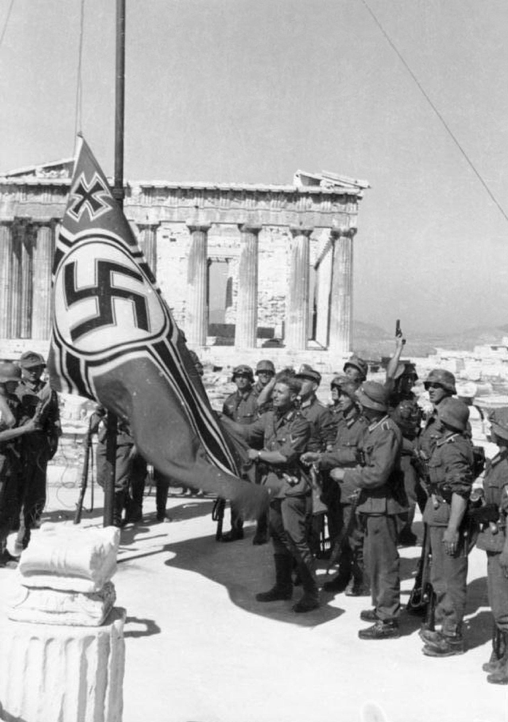
The Athenian populace awoke the next morning to find a Greek flag flying in its place and front-page editorials led by the tightly censored Athenian press spreading mystique around the town like wildfire.
The Gestapo would launch a manhunt and sentence the pair to death in absentia.
It was seen as the first, symbolic act of resistance against the month-old occupation and inspired and symbolised Greek and wider European resistance to Nazism.
Meanwhile, with their identities unbeknownst, the boys’ mothers were turning all evidence, including diaries and the flag pieces, to ash. Santas would narrowly dodge his death sentence even after being arrested in March 1942.
Later life
The liberation of Greece in mid-1945 allowed for a brief sigh of relief before the onslaught of a new Civil War (1946 – 1949) between the capitalist Democratic Army of Greece (DSE) and the Communist Party of Greece (KKE). Santas began fighting for the KKE as a communist partisan in 1943.
The fallout of the KKE’s unsuccessful attempt to claim power led Santas on-the-run across eastern Greece and saw him exiled to Ikaria, Psyttaleia, and interred in the concentration camps of Makronisos between 1946-1948. Santas was imprisoned in Makronisos in 1948 until managing to use Italy as a gateway to receive political asylum in Canada. Canada is where Santas would live for almost 20 years before returning to Greece in 1963 where he would continue his struggle against the Monarchy and later the Junta from 1967-1974.
Death and legacy
Apostolos Santas died aged 89 on the 30th of April 2011 in the Sotiria Hospital of Athens, Greece. Santas died of respiratory failure.
Santas’ wife, Cleopatra, predeceased him. He is survived by their two daughters.
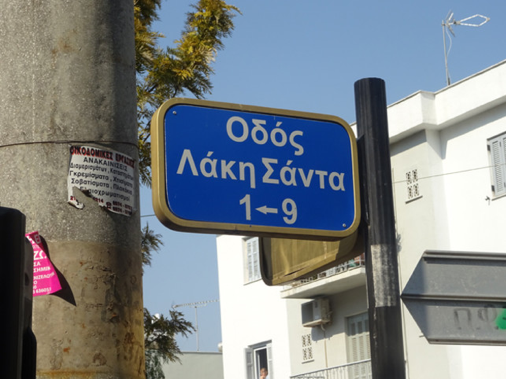
Santas received numerous awards from various institutions in Greece and other Allied countries for his role in the resistance. Parnassos Street, in Athens’s Palaio Faliro, was renamed “Λάκη Σάντα Street” on February 21, 2019.
“It was the first gasp of resistance… Two 18-year-olds toyed with history. They saw a symbol and decided to become symbols themselves,” a Greek Parliament resolution proclaimed in 2008, during a plenum session honouring the pair.

